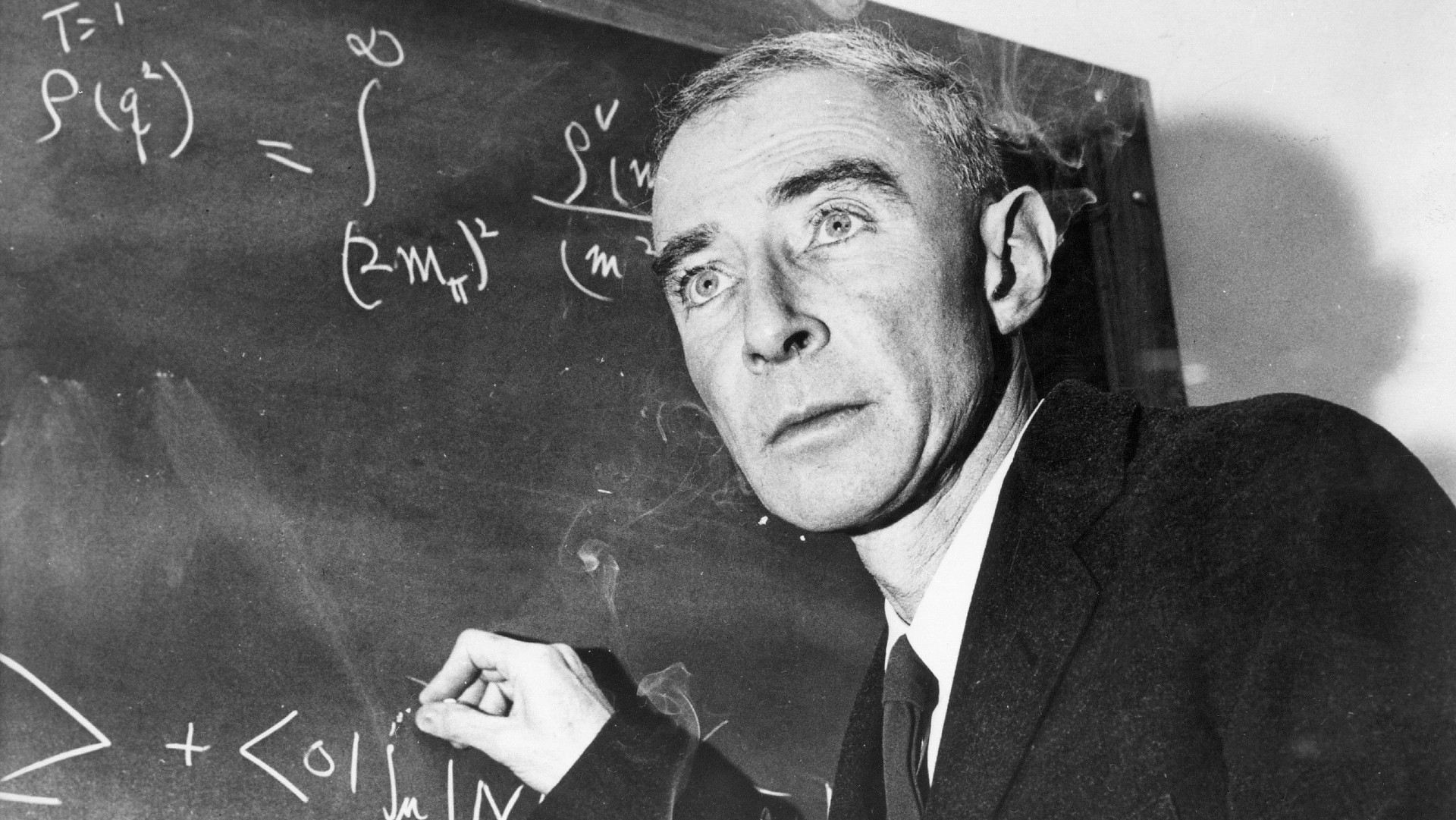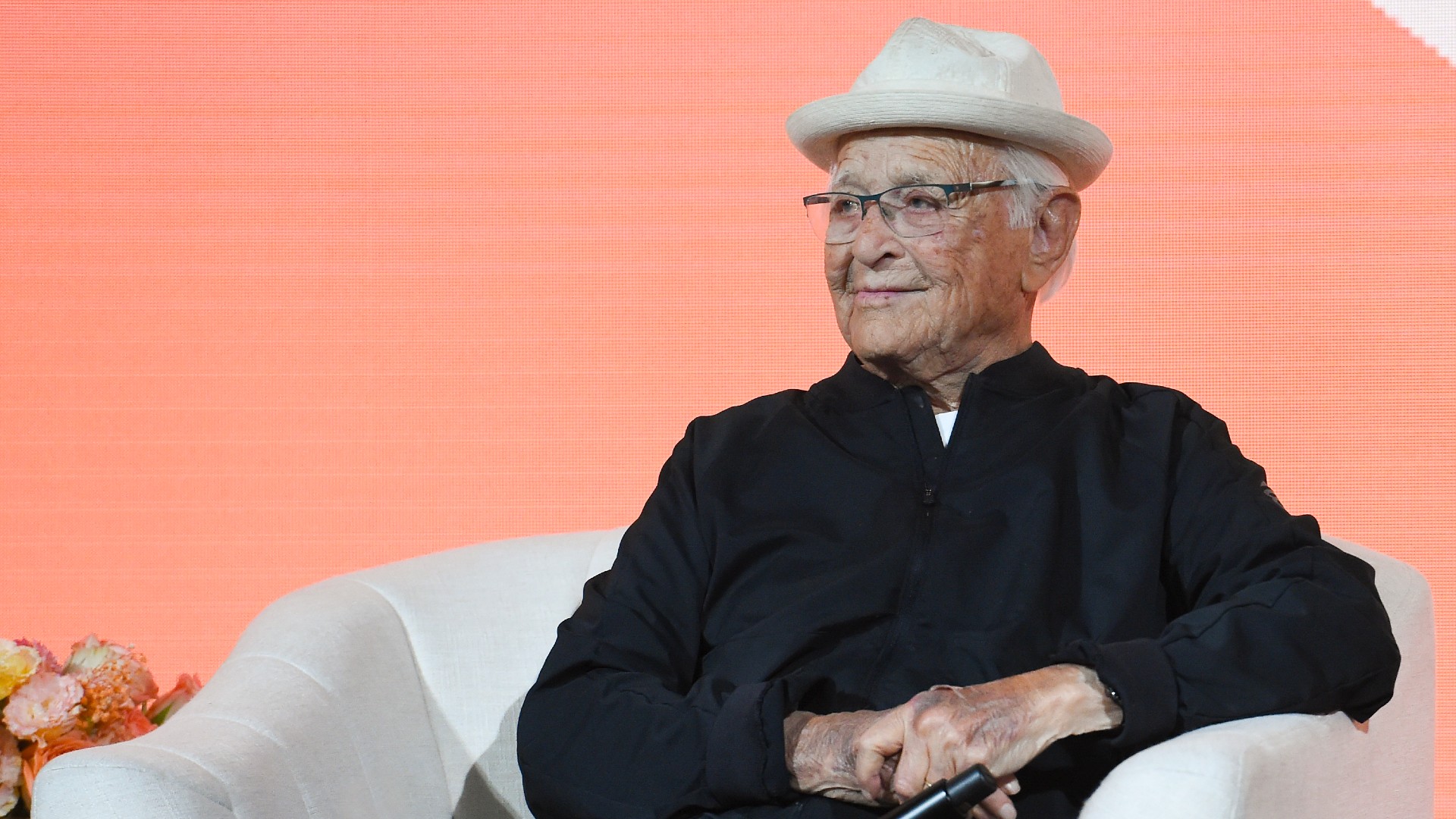J. Robert Oppenheimer: the real ‘father of the atomic bomb’ at centre of new blockbuster
The physicist who led the Manhattan Project has become a martyr for some but his legacy is more complicated

A free daily email with the biggest news stories of the day – and the best features from TheWeek.com
You are now subscribed
Your newsletter sign-up was successful
J. Robert Oppenheimer, the subject of a soon-to-be-released blockbuster directed by Christopher Nolan and starring Cillian Murphy, could be one of the most misunderstood figures of the 20th century.
He is remembered as “the father of the atomic bomb”, but his story “is more than how the world’s most destructive weapon came to be”, said NPR. Rather, it is about “a complex, contradictory and at times mystical genius who defies easy labels”.
Oppenheimer “isn’t an easy biographical subject”, agreed Steven Shapin in his 2012 review of “Inside the Centre: The Life of J Robert Oppenheimer” by Ray Monk for The Guardian. “The complexity, the contradictions, and the cultural breadth provoke interest in the man, while for the biographer they constitute massive practical problems.”
The Week
Escape your echo chamber. Get the facts behind the news, plus analysis from multiple perspectives.

Sign up for The Week's Free Newsletters
From our morning news briefing to a weekly Good News Newsletter, get the best of The Week delivered directly to your inbox.
From our morning news briefing to a weekly Good News Newsletter, get the best of The Week delivered directly to your inbox.
Who was J. Robert Oppenheimer?
Born in New York in 1904 to wealthy German Jewish immigrants, Oppenheimer showed a natural ability for science from an early age, and was invited to deliver a lecture to the New York Mineralogical Club at the age of just 12. “A privileged and sheltered childhood combined with his extraordinary intelligence also left him with rather poorly developed social skills,” said Scientific American.
In 1922, he graduated top of his chemistry class at Harvard before moving to Cambridge and then the University of Göttingen in Germany to pursue a career in physics. One of the world’s leading centres for theoretical physics, it was in Göttingen he published a number of groundbreaking papers on quantum physics, achieving international fame for his work on molecular wave functions.
After taking up professorships at the University of California, Berkeley, and the California Institute of Technology, throughout the 1930s he “quickly established himself as one of the most promising physicists of his generation” said Scientific American, and worked in the emerging fields of nuclear physics, quantum field theory and astrophysics.
Brilliant but ‘condescending and volatile’
A true polymath, Oppenheimer was fascinated by philosophy, literature and Eastern religion as well as physics. He knew Latin, French, German and Greek, and later studied Sanskrit so he could read Hindu texts.
A free daily email with the biggest news stories of the day – and the best features from TheWeek.com
He was also a chain smoker and heavy drinker, suffered from deep bouts of depression and “could be condescending, volatile, and impractical”, said Insider.
“Charming one moment, caustic the next”, even in his late 30s “he carried the markings of a spoiled, impetuous rich kid whose depressive behaviour occasionally swung toward the erratic”, said The New York Times.
While studying at Cambridge he confessed to putting a poisoned apple on his tutor’s desk and as a young professor in California he crashed his car while racing a train.
It was during this period that he met and began an affair with Jean Tatlock, a committed Communist Party member who introduced him to left-wing politics and a radical set of “fellow travellers” – associations that would have devastating consequences for Oppenheimer in the years to come. The relationship was tempestous and did not last, however, and in 1940 he married Katherine “Kitty” Puening, a biologist and former communist, with whom he had two children.
Becoming ‘the father of the atomic bomb’
Appointed in 1942 to lead the scientific work of the Manhattan Project – tasked with developing the atomic bomb – Oppenheimer was considered a “bizarre choice”, said Shapin in The Guardian.
There was nothing in his background to indicate that he had the ability to lead such a mammoth undertaking. Shapin wrote that “he was temperamentally volatile, patronising and inept in his social relations, and thoroughly impractical”. However, at Los Alamos in New Mexico, where the bomb was designed and assembled, “he rapidly metamorphosed into a marvellously efficient and charismatic administrator”.
General Leslie Groves, who appointed Oppenheimer to run the project, may have also seen in him “a man driven far less by ideology than by ambition, whose need to be an important player ensured that anything he directed would be a success”, said The New York Times.
On 16 July 1945 the first atomic bomb successfully detonated in New Mexico, and it was followed just a few weeks later by the bombing of Hiroshima and Nagasaki in Japan.
A complicated legacy
Lionised by the public as the brains behind the bomb, Oppenheimer became a household name in the immediate aftermath of the Second World War and probably the most famous scientist in the world.
Yet continued suspicion over his communist associations in the 1930s, his support for the idea of a world government to regulate atomic weapons and opposition to the development the more powerful Hydrogen bomb made Oppenheimer an easy target for his political enemies and scientific rivals during the McCarthyite “Red Scare” witch-hunts of the late 1940s and early 1950s.
In 1954, the US Atomic Energy Commission revoked Oppenheimer’s security clearance over questions around his loyalty. A controversial decision even at the time, it was formally nullified in 2022 by the US energy secretary, Jennifer Granholm, who said: “As time has passed, more evidence has come to light of the bias and unfairness of the process that Dr. Oppenheimer was subjected to while the evidence of his loyalty and love of country have only been further affirmed.”
He died of throat cancer at the age of 62 in 1967.
His public torment about the devastation his invention caused, his hope it might make war obsolete and his own contradictions that brought about his political disgrace and downfall, “have marked him in the eyes of some as all the more heroic, a visionary persecuted by warmongering McCarthyite troglodytes”, said The New Atlantis.
“His legacy, of course, is far more complicated.”
“Oppenheimer” is released in the UK on 21 July and is based on the 2005 biography “American Prometheus: The Triumph and Tragedy of J. Robert Oppenheimer” by Kai Bird and Martin J. Sherwin.
-
 6 of the world’s most accessible destinations
6 of the world’s most accessible destinationsThe Week Recommends Experience all of Berlin, Singapore and Sydney
-
 How the FCC’s ‘equal time’ rule works
How the FCC’s ‘equal time’ rule worksIn the Spotlight The law is at the heart of the Colbert-CBS conflict
-
 What is the endgame in the DHS shutdown?
What is the endgame in the DHS shutdown?Today’s Big Question Democrats want to rein in ICE’s immigration crackdown
-
 The 8 best biopic movies of the 21st century (so far)
The 8 best biopic movies of the 21st century (so far)the week recommends Not all true stories are feel good tales, but the best biopics offer insight into broader social and political trends
-
 Garrett Graff's 6 favorite books that shine new light on World War II
Garrett Graff's 6 favorite books that shine new light on World War IIFeature The author recommends works by James D. Hornfischer, Craig L. Symonds, and more
-
 5 best movie sequels of all time
5 best movie sequels of all timeThe Week Recommends The second time is only sometimes as good as the first
-
 Allies at War: a 'revelatory' account of the Second World War
Allies at War: a 'revelatory' account of the Second World WarThe Week Recommends Tim Bouverie's 'old-fashioned diplomatic history' explores the often fraught relationship between world powers
-
 Celebrations to mark 80 years since VE Day
Celebrations to mark 80 years since VE DayThe Week Recommends Events will be taking place up and down the country, from parades to street parties
-
 2023: the year of nostalgia
2023: the year of nostalgiathe explainer There was something familiar in the air this year
-
 2024 Golden Globe nominations predictions: Will Barbenheimer dominate?
2024 Golden Globe nominations predictions: Will Barbenheimer dominate?In Depth Plus: Which films will be nominated in a new category honoring blockbusters?
-
 All in the family: honoring Norman Lear, the godfather of the American sitcom
All in the family: honoring Norman Lear, the godfather of the American sitcomthe explainer Lear revolutionized television and brought us memorable characters like Archie Bunker and George Jefferson